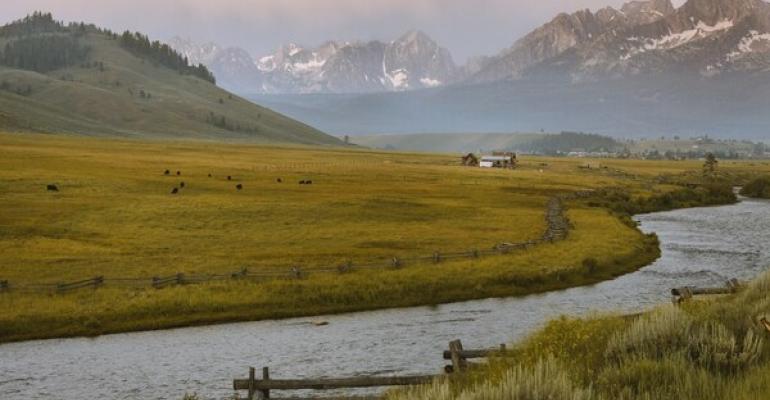Taco Bell today announced a partnership with its supplier Cargill as well as the National Fish and Wildlife Foundation to implement new conservation and regenerative agriculture practices across cattle grazing lands. Taco Bell and Cargill will allocate $2 million to the partnership, while another $2 million will come from federal grants, for a total of $4 million throughout the next four years.
The partnership will provide beef producers with technical and financial tools to expand regenerative ranching practices, from conserving grassland ecosystems to improving river water quality and biodiversity. The effort is estimated to conserve and restore tens of thousands of acres and sequester up to 44,000 metric tons of carbon dioxide equivalent per year in 2030. The effort aligns with parent company Yum Brands’ recent pledge to reduce greenhouse gas emissions by nearly 50% by 2030, as purchased food in Yum’s supply chain produces more than two-thirds of its emissions.
"Collaboration with ranchers and other supply chain partners is needed now more than ever, especially with food and farming being critical avenues for positive climate solutions," Jon Hixson, Yum’s chief sustainability officer, said in a statement. "We're proud to have partners in the National Fish and Wildlife Foundation and Cargill that acknowledge the great responsibility we carry to both Taco Bell fans and the environment."
Organizations supporting ranchers as they seek to implement regenerative agricultural practices can submit applications starting May 4 until August 3, with projects to start in 2024. The program will impact a vast region stretching from the Colorado Rockies to the Great Basin, including local organizations and communities across portions of seven states: Colorado, Idaho, Montana, Nevada, Oregon, Utah and Wyoming.
"Through the voluntary implementation of managed grazing practices, benefits to both rancher operations and wildlife are realized," Jeff Trandahl, executive director and CEO of NFWF, said in a statement. "Taco Bell, in partnership with Cargill, will help organizations working directly with ranchers in the Intermountain West to implement important changes, providing better habitat for wildlife, increasing carbon sequestration, and creating a more resilient ecosystem for people and for the species that depend on these rangelands for their very survival."
This partnership comes as Taco Bell targets 10,000 units in the next few years, from just over 7,000 currently. It is one of several collaborations and initiatives the chain and its parent company have forged to lessen the impact of their environmental footprint. Taco Bell is also a member of the U.S. Roundtable for Sustainable Beef, for instance. Sister chain Pizza Hut has partnered with the Dairy Farmers of America and suppliers to provide farmers with a cup that assesses their cows’ feed to produce dairy with less waste. And, KFC has started adding environmentally-friendly Green Line Furniture to its new restaurants and remodels. Yum Brands also recently adopted a new packaging policy to streamline its sustainability efforts across its massive global system.
Contact Alicia Kelso at [email protected]





